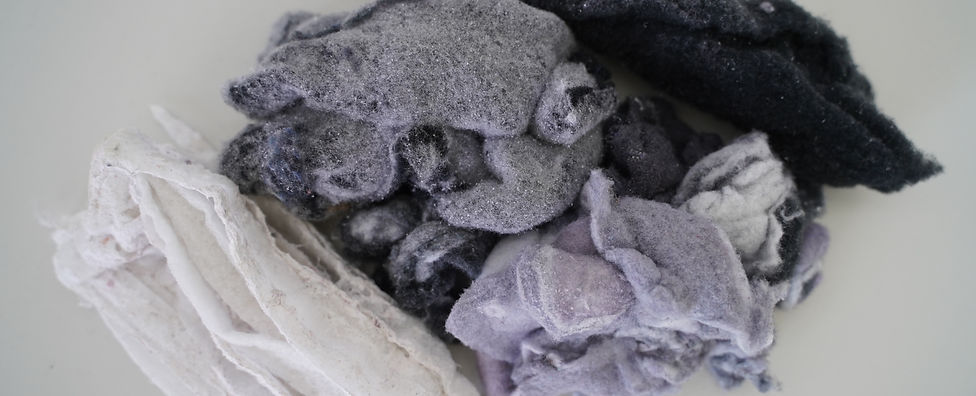
-PhotoRoom_png-PhotoRoom.png)
Microfibers
Microfibres are a type of microplastic which is below 5mm in size and thinner than a human hair.
Synthetic clothes can shed microfibres such as polyester, fleece jackets, nylon, acrylic or even recycled plastic clothing.
Washing machines and Waste Water treatment plants are not designed to collect these fibres so they make their way to the sea. The fibres are then eaten by marine creatures then make their way up the food chain.
Friends of the Earth have created a list of ways to reduce microfibres…
1. Wash at low temperatures
A lower-temperature wash is less aggressive and therefore less likely to shake out plastic fibres.
2. Put your washing in a special bag
Use a Guppy Bag or Coraball in your washing machine. They claim to help collect the microfibres that shed from your clothes during washing.
3. Fill the washing machine
A full washing machine reduces friction between items – in other words, they don't rub against each other as much.
4. Reduce spin speeds
Faster spins dry clothes quicker but they also shake them up more, risking more plastics shedding.
5. Air dry rather than tumble dry
Tumble drying is more aggressive than air drying – and could cause your clothes to shed more plastic.
6. Use a front-loading washing machine
Tests show that top-loading washing machines probably release more plastic fibres.
7. Buy fewer fleeces
Polyester fleece could well be one of the biggest emitters of microfibres. Consider buying a woollen fleece instead.
8. Keep your clothes for longer
Your clothes are likely to shed more plastic in the first few washes – so frequently changing your wardrobe will probably increase the amount of plastic you're sending into the environment. Buy higher quality clothes that last.
In point 2 it suggests you try collecting microfibres before they enter the waterways. I use a Guppy Friend Washing Bag.
STOP! Micro Waste are a non-profit initiative dedicated to raising awareness about the (micro) plastic problem. They have developed the Guppy Friend washing bag that will collect micro fibres from your wash.
Profits are reinvested in further activities to address the microwaste problem and to avoid single-use plastics. Www.guppyfriend.com/en. A guppy friend bag is £25. I worried using mine I wasn't seeing many fibres being collected the Sliced Bread podcast (linked below) mentioned these bags help to reduce micro plastics by also protecting the clothes from movement in the wash. Not only do they collect any fibres that come off but also reduce fibres coming off.
If you don’t wish to use a bag you could opt for a Cora Ball. These balls were based around a design of a coral in nature as they filter small particles from the sea. These balls are just thrown in with your wash to collect up fibres. A Cora Ball is £29.
Alternatively, you could opt to fit a filter to your washing machine and just replace the cartridge every 15-20 washes. There is a monthly subscription service at www.planetcare.org where you can fit a filter to your washing machine and be sent new filters as you need them. This service is £8.85 per month.
Could you reduce your impact from microfibres?
Further reading ... Clothes washing linked to ‘pervasive’ plastic pollution in the Arctic | Plastics | The Guardian
Listen to - Sliced Bread - Eco Laundry Products - BBC Sounds
